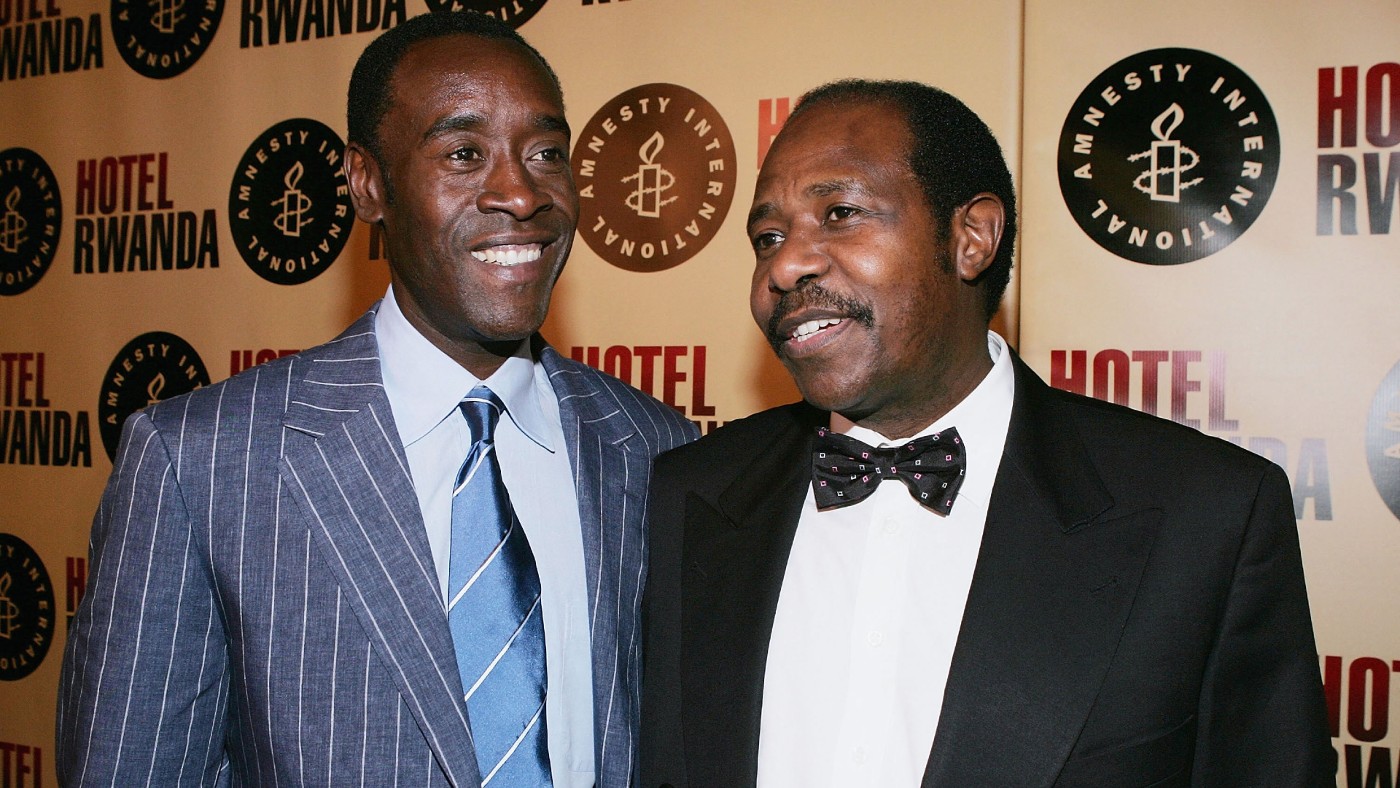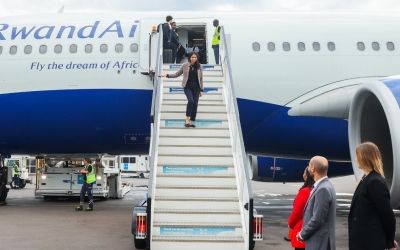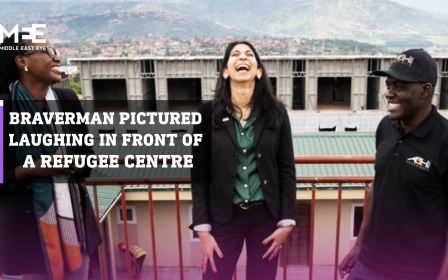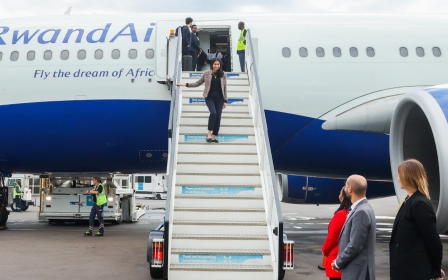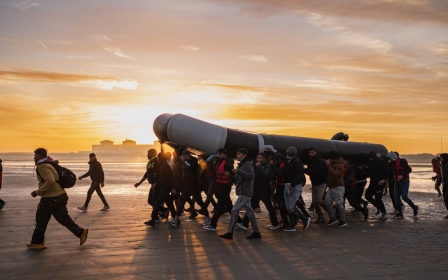Hotel Rwanda hero released from prison following Qatar and US talks
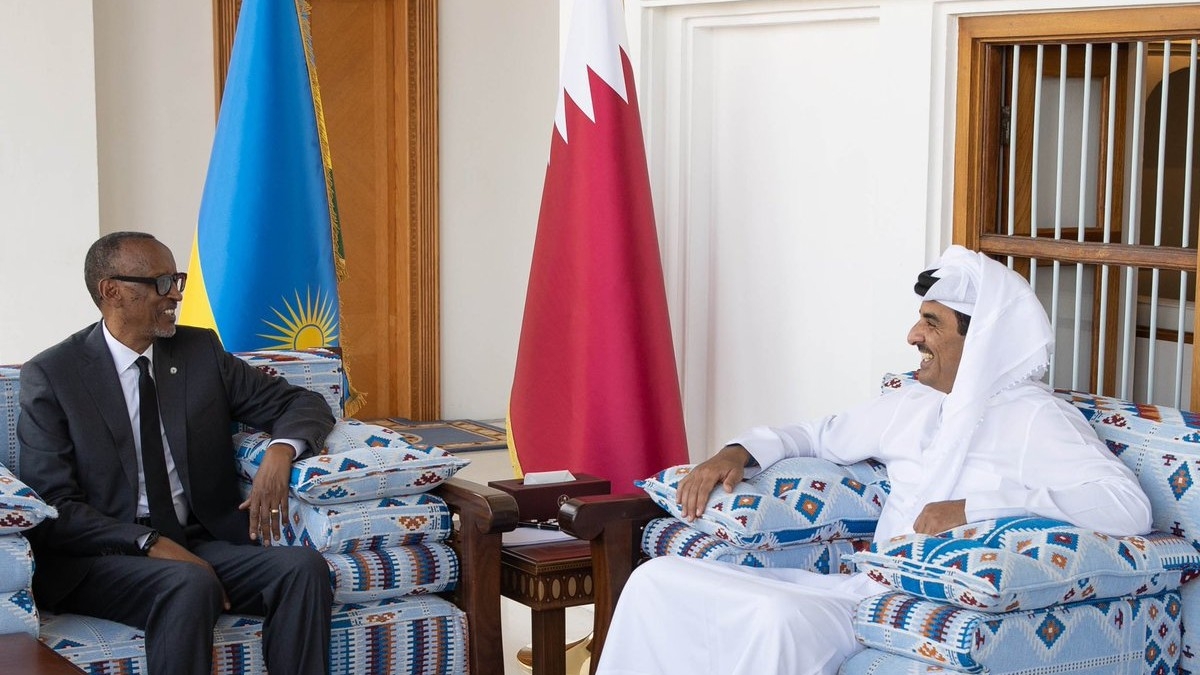
Paul Rusesabagina, hero of the Hollywood film Hotel Rwanda, was released from prison by the Rwandan government on Friday following talks mediated by the United States and Qatar.
The release of the hotelier and activist, who was played by American actor Don Cheadle in the film, is a public relations boost for the British government, which has been heavily criticised for striking a $146m deal to deport migrants and asylum seekers to Rwanda.
Both US President Joe Biden and US Secretary of State Antony Blinken welcomed the news, with Blinken thanking Qatar for its assistance.
Rusesabagina, 68, was sentenced in September 2021 to 25 years over his ties to an opposition group that has an armed wing. He denied responsibility for armed attacks and boycotted the trial, calling it a sham.
In an October 2022 letter to Rwandan President Paul Kagame, Rusesabagina said: "I regret not taking more care to ensure that members of the MRCD coalition fully adhered to the principles of non-violence." He wrote that if he was pardoned and freed, he would spend the rest of his days in "quiet reflection" in the US.
New MEE newsletter: Jerusalem Dispatch
Sign up to get the latest insights and analysis on Israel-Palestine, alongside Turkey Unpacked and other MEE newsletters
Rusesabagina was moved from Mageragere Prison to the Qatari ambassador's residence in Kigali, the Rwandan capital, on Friday night. He is expected to stay there for a couple of days before flying to Doha and then on to the US, where he will live.
Majed al-Ansari, a Qatari foreign ministry spokesperson, confirmed the commuting of Rusesabagina's sentence and said in a statement: "The procedure for his transfer to the State of Qatar is under way; and he will then head to the US."
Qatar is understood to have played the role of middleman between the Rwandan government, the United States and Rusesabagina's two daughters, who have been actively campaigning for their father's release.
Paul Kagame met Qatar's emir, Tamim bin Hamad Al Thani, on 21 March. Yolande Makolo, Rwandan government spokesperson, told Middle East Eye that "Qatar was active in seeking a humanitarian resolution and are facilitating post-release logistics". She said the British government was not involved.
The Rwandan government said the commuting of Rusesabagina's sentence was also "the result of a shared desire to reset the US-Rwanda relationship". Kagame had been under pressure from Washington to release the high-profile prisoner, who said he was "kidnapped" after being tricked into thinking he was flying from Dubai to Burundi in 2019.
Posters in the Georgetown area of Washington called Rusesabagina the "hostage of a repressive regime" and added to Rwandan outrage as well as the US desire to see the situation resolved.
"After Rusesabagina's case was taken up the US Special Envoy for Hostage Affairs, its political profile shot up in Washington, attracting congressional and civil society support… and complicating US-Rwanda relations," Patrick Smith, editor of Africa Confidential, told MEE.
Rwanda's diplomatic web
Rusesabagina became famous during the Rwandan genocide of 1994, when he housed over 1,200 Hutu and Tutsi refugees fleeing the notorious Interahamwe militia in the hotel he was managing. At least 500,000 people were killed in the genocide, which was perpetrated by the Hutu-led government against the Tutsi population and moderate Hutus.
After finding international fame following the release of Hotel Rwanda, Rusesabagina became a public speaker and moved into politics, eventually becoming a vocal critic of Kagame, a former military officer who has ruled the small east African country since 2000.
Under Kagame, Rwanda has been heralded in the West for its development but has faced severe criticism from human rights groups for the violent repression of political opposition and the use of forced disappearance, torture and other ill-treatment.
Rwanda's support for the M23 militia, which has been accused of summary killings and mass rape in eastern Congo, is seen as deeply destabilising and has provoked the ire of the Biden administration.
Nevertheless, Kagame, a famed political operator, has made himself invaluable to governments across the world. The migration deal struck with the UK was turned down by Ghana and Kenya, while the Rwandan military is currently protecting French oil interests in Mozambique. Rwanda also maintains good relations with Russia and China.
The Israeli playbook
One of Kagame's closest relationships is with Israel and Prime Minister Benjamin Netanyahu. The two leaders struck a cash-for-asylum deal much like the one later agreed on with the UK.
In 2014, the Netanyahu government began sending male refugees - allegedly "willingly" - to Rwanda. "In reality, consent was obtained by imprisoning them, harassment and/or denial of basic human rights," according to Israeli human rights lawyer Eitay Mack.
After a legal challenge, Netanyahu agreed to pay Kagame's government $5,000 for each unwilling refugee it took in. In 2018, after most of the refugees had fled Rwanda, Israel's supreme court, which is now under attack from a new Netanyahu-led government, stopped the deportations.
Rwanda and Israel remain close allies, with the African country characterised by a former New York Times correspondent as a "tough, suspicious, post-genocide Israel-like country whose national ethos, simply stated, was Never Again".
Rwanda's politicking and power-playing has enraged some of its neighbours, though. In an interview with the Times, Felix Tshisekedi, president of the Democratic Republic of Congo (DRC), said that Britain was "turning a blind eye" to Kagame's abuses, undemocratic record and "atrocities by his proxy army in eastern Congo".
Tshisekedi claimed that the UK was staying silent about Rwandan atrocities because of the deportation deal championed by Home Secretary Suella Braverman.
Andrew Mitchell, a British foreign office minister and Kagame ally who is nevertheless known to oppose the deportation plan, is expected in the DRC shortly to meet with the Congolese.
Britain's ruling Conservative Party, led by Prime Minister Rishi Sunak, has put its "stop the boats" plan - of which Rwanda is a key part - at the forefront of its messaging for next year's general election.
Middle East Eye delivers independent and unrivalled coverage and analysis of the Middle East, North Africa and beyond. To learn more about republishing this content and the associated fees, please fill out this form. More about MEE can be found here.


